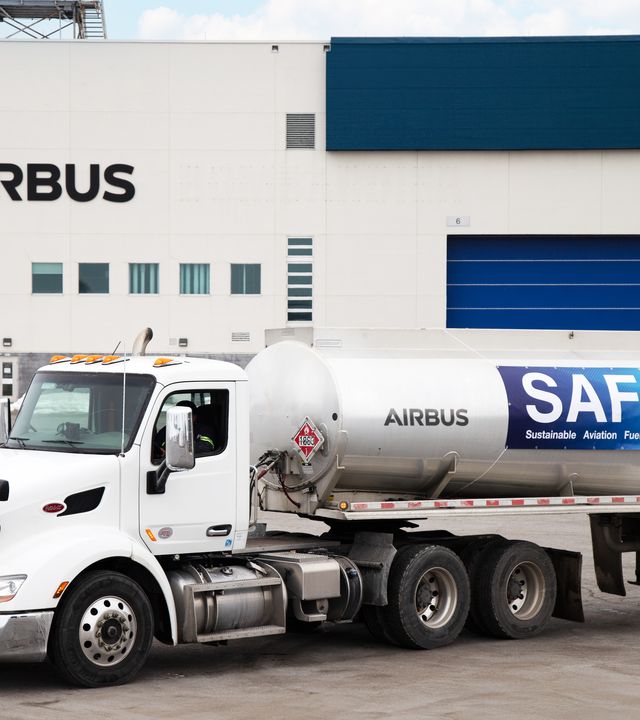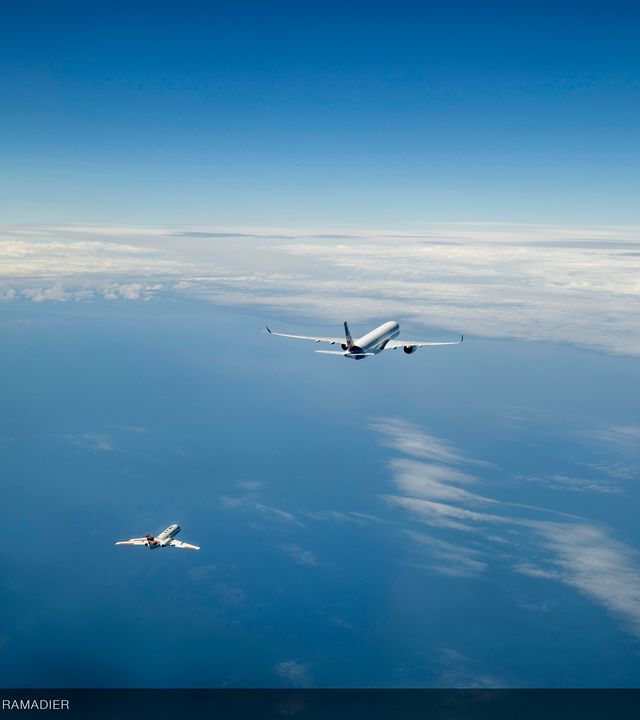Adopting a lifecycle approach
Reducing environmental impacts
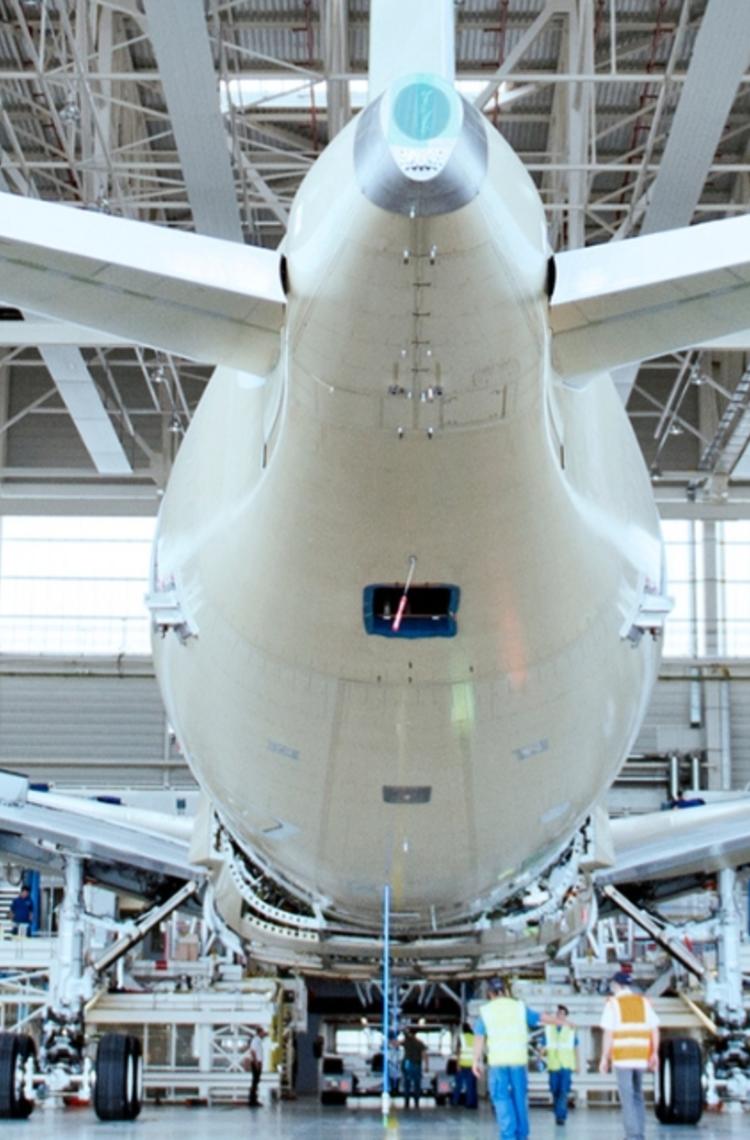
From design to end of life
Highly dependable, durable and readily repairable, Airbus products are built to last over a long lifespan of more than 20 years. On top of this, Airbus takes a lifecycle approach. In addition to creating more efficient products and services, the Company endeavours to reduce environmental impacts across its operations, across the supply chain and at product end of life.
Environmental responsibility across the entire lifecycle
We believe in managing the environmental footprint of our products and incorporating circular approaches across the entire lifecycle.
- Design: We significantly invest in R&D to design aircraft with lower fuel burn and that achieve better environmental performance than previous generations of products, including reduced NOx and CO2 emissions.
- Production and manufacturing: We use the environmental management system ISO 14001 to manage the footprint of our industrial operations.
- Responsible supply chain: We work closely with our suppliers to select materials and components that are sourced ethically and produced responsibly to minimise impact on the environment.
- Operations: We support our customers throughout the aircraft’s entire service lifespan by participating in efforts to scale the ecosystem for sustainable fuels and contributing to air traffic management solutions as well as by offering services for fleet optimisation and in-service data analysis.
- End-of-life recycling: Our aircraft can be dismantled in a manner that maximises reuse and recycling, and focuses on the safe disposal of non-recyclable parts.
Reducing our manufacturing footprint at sites worldwide
As for 2024, 90% of our 150,000 employees work under ISO 14001, which defines strong criteria for environmental stewardship.
Our high5+ programme targets a significant reduction of our environmental footprint in manufacturing activities. We measure our progress and publish it in our Sustainability Statement, which forms part of the Annual Report of the Board of Directors.
- CO2: Airbus is committed to contributing to the Paris Agreement targets and investigating multiple decarbonisation levers. We have committed to reduce our Scope 1 and Scope 2 industrial emissions by 63% by 2030, against a 2015 baseline. The use of sustainable aviation fuel in our operations, combined with improved efficiency, will support this ambition.
- Energy: A significant portion of our manufacturing footprint originates from our energy consumption. Today, we are working to increase the share of renewable and low-carbon energy at our sites. Improved monitoring, increased efficiency for lighting, heat and steam, and new construction in line with certified building standards are additional initiatives currently underway.
- Water: To limit our water consumption, we focus on increasing water recycling and reuse in our industrial activities. Increased measuring and monitoring is not only key to raising awareness of good practices, but also to finding opportunities to further reduce waste and detect leaks.
- Air emissions: Air emissions, such as volatile organic compounds (VOCs), are mainly related to surface cleaning, or treatment and paint. Even with delivery rates increasing, we aim to maintain 2015 levels.
- Waste: We have improved our monitoring and measuring capabilities to support waste diversion, with a goal to completely avoid incineration without energy recovery.

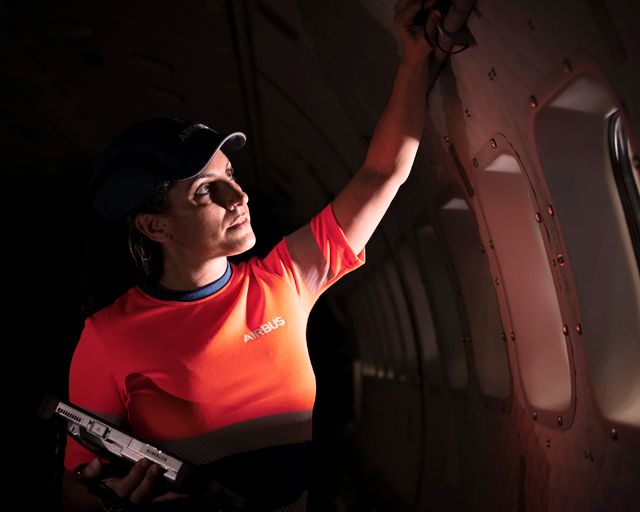
Recycling or recovering around 90% of our aircraft
With aircraft often in operation for more than 20 years, maintenance and services are required to extend their useful life. Through partnerships and joint ventures, the Company supports customers in this endeavour. Airbus has helped strengthen the second-hand parts market through subsidiaries Satair and VAS Aero Services. Joint ventures TARMAC Aerosave, with sites in France and Spain, and the Airbus Lifecycle Services Centre in Chengdu, China, offer extensive maintenance and end-of-life services. When an Airbus aircraft reaches the end of its serviceable life, around 90% of the constituent parts by mass are able to be recovered or recycled.
Where there are parts that we cannot recycle, our focus is on safe disposal of this waste.
The latest in sustainability
In the spotlight
-
2024: The Airbus Foundation’s year in review
Web Story
Airbus Foundation
The Airbus Foundation releases its 2024 highlights and appoints new Board members. -

Saving the giant pangolins of Nyakweri Forest
Web Story
Airbus Foundation
-

Airbus Foundation and Solar Impulse Foundation launch call for projects
Web Story
Sustainability
-
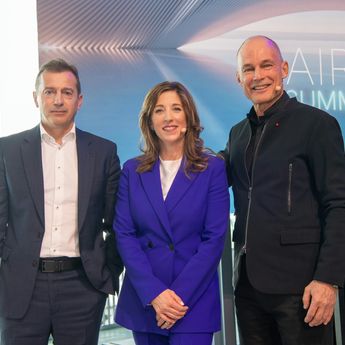
Airbus Foundation joins forces with the Solar Impulse Foundation to boost climate…
Press Release
Sustainability
-
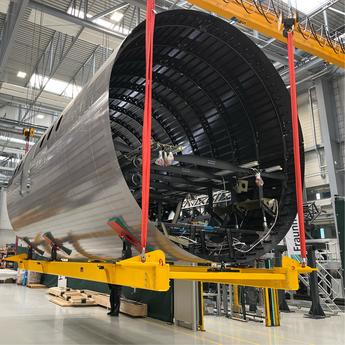
Fantastic thermoplastics
Web Story
Innovation
